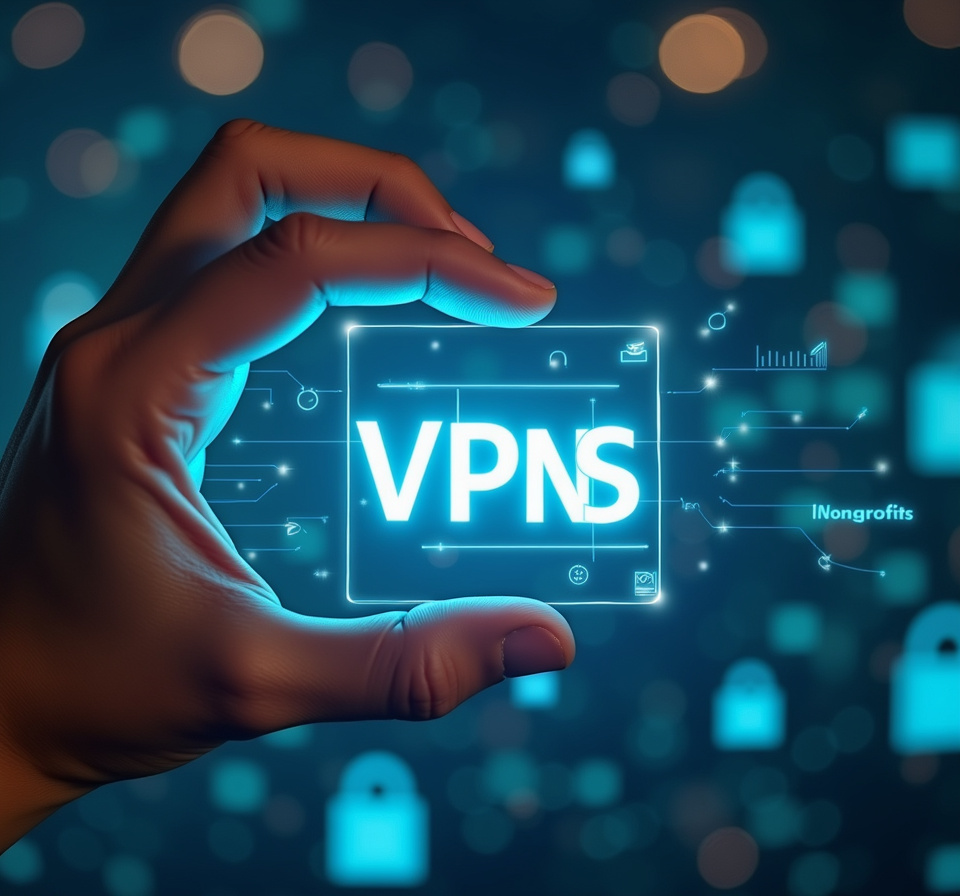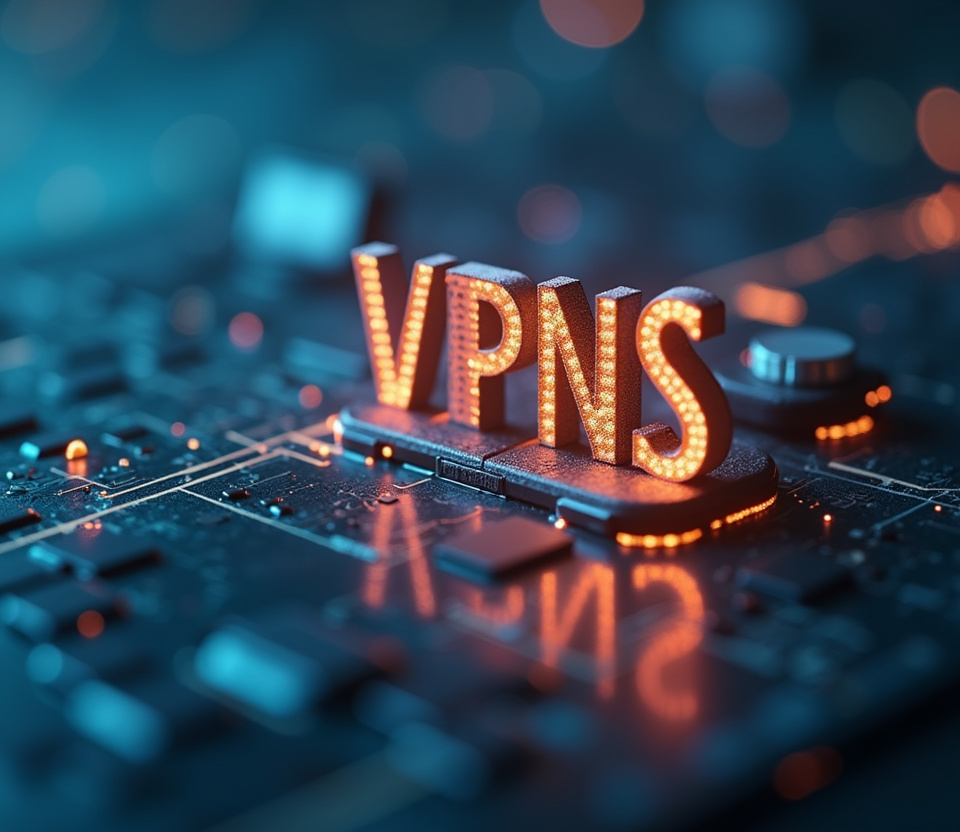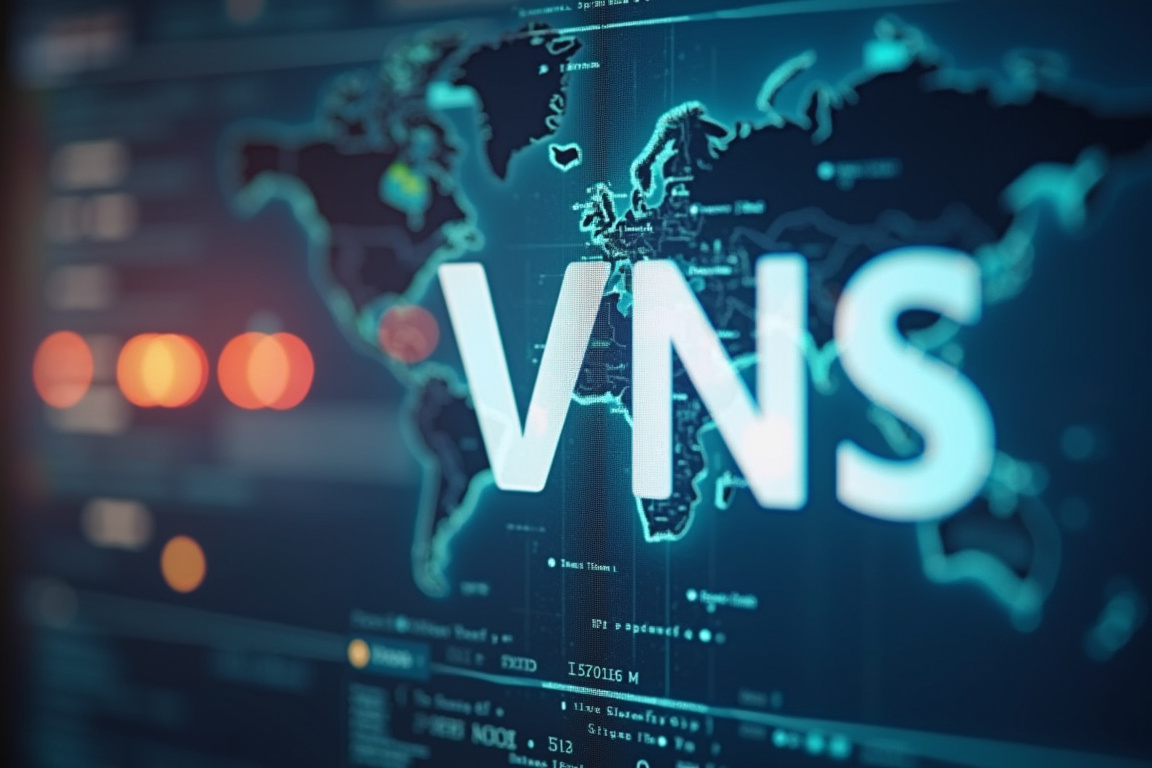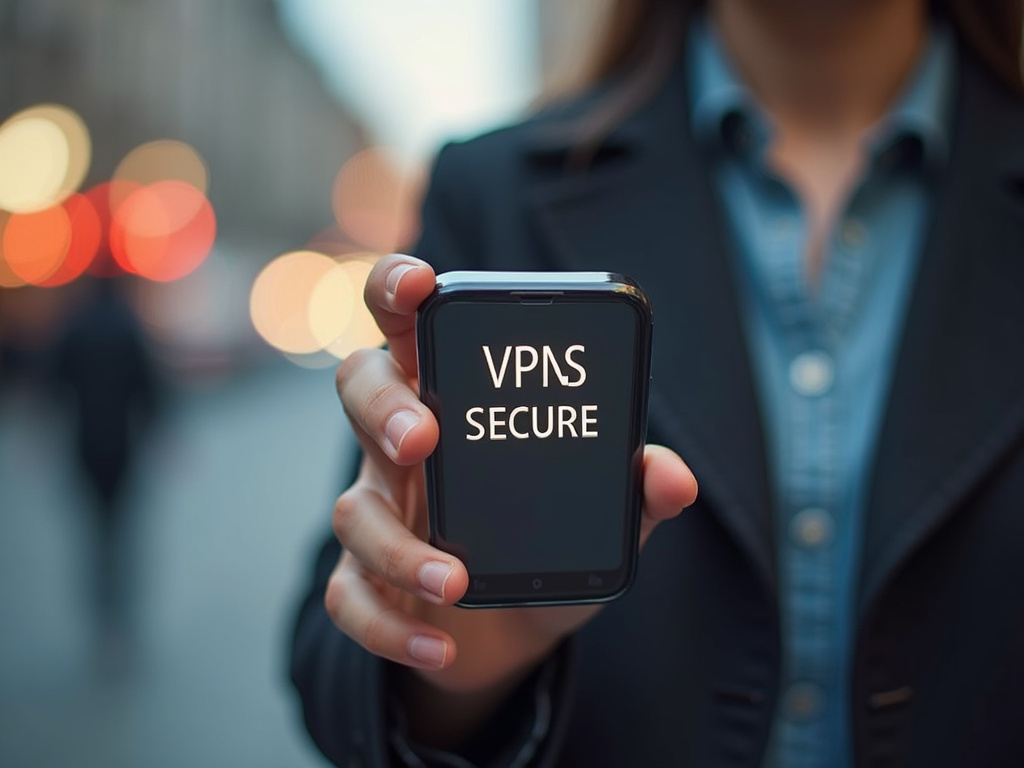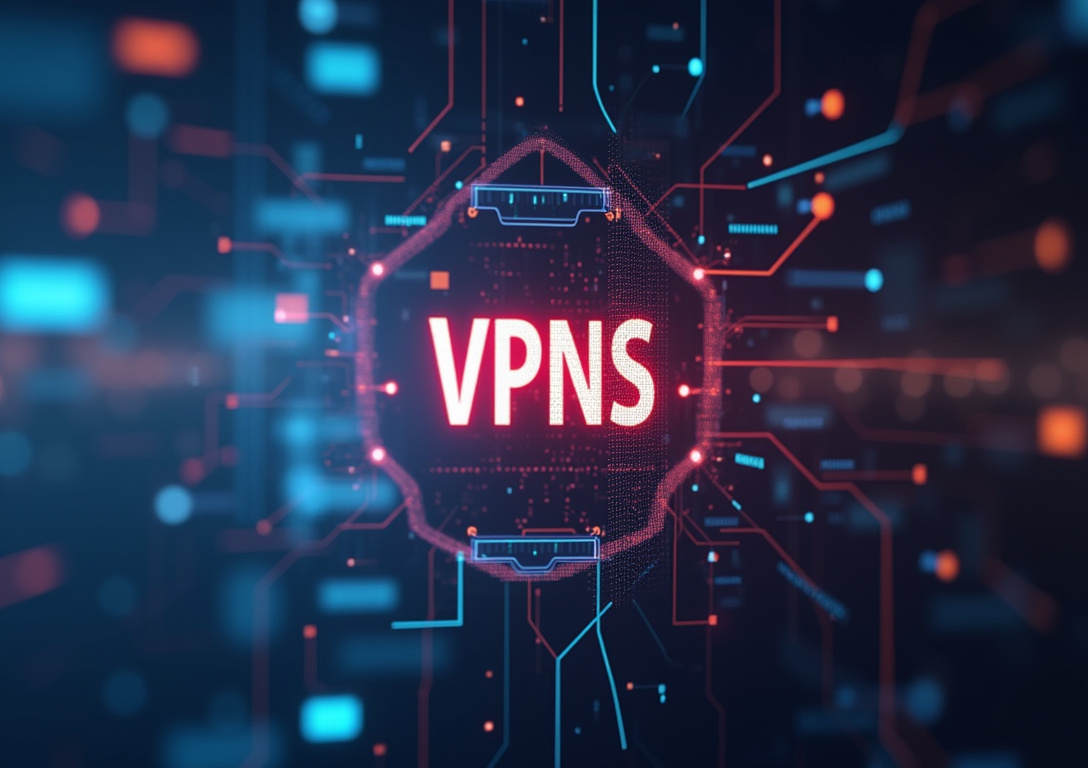VPNs for Nonprofit Management: Securing Organizational Data
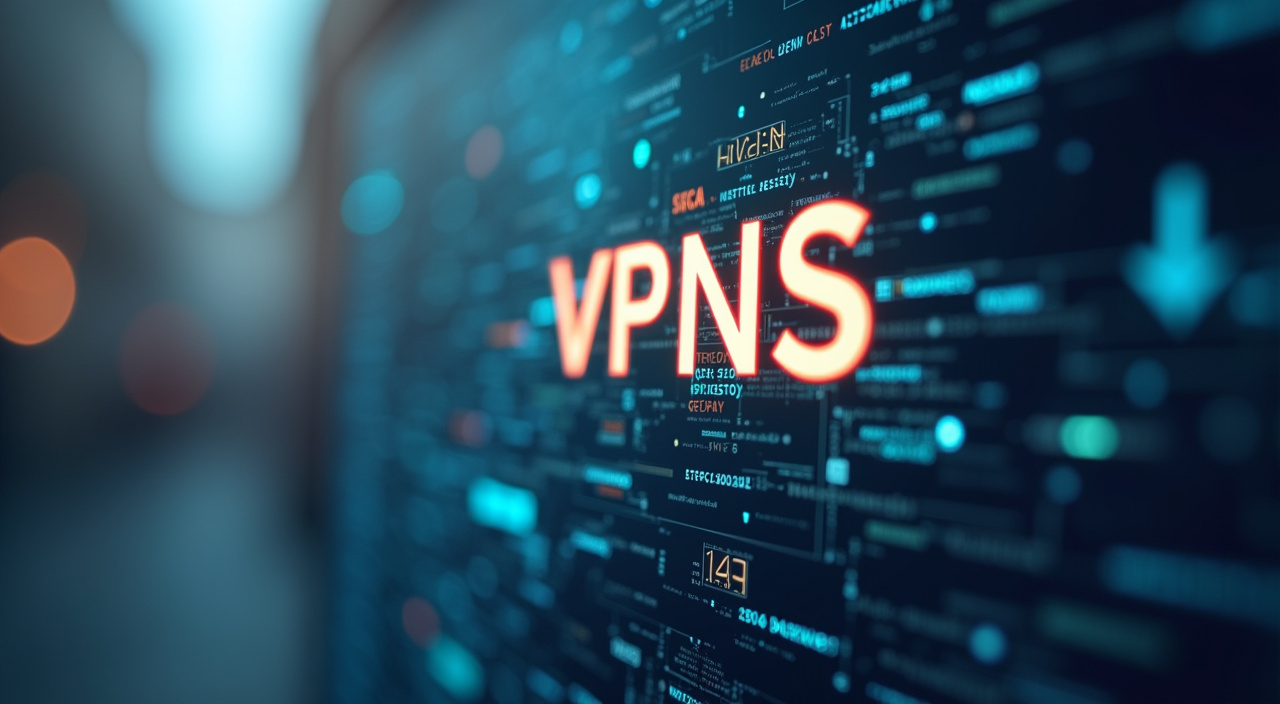
Table of Contents
The Critical Need for Data Security in Nonprofits
In an era where digital threats loom large, nonprofit organizations (NPOs) face an increasingly complex landscape of cybersecurity challenges. These challenges target the very core of their operations: sensitive organizational data, the privacy of their donors, and the overall integrity of their missions. Protecting these assets is not merely a matter of compliance; it's fundamental to maintaining public trust and ensuring the continued delivery of vital services to the communities they serve.
The consequences of a data breach or security compromise can be devastating, eroding hard-earned reputations, diminishing donor confidence, and potentially crippling operations. This article delves into the critical role that Virtual Private Networks (VPNs) play in bolstering the security posture of NPOs, providing a practical and cost-effective solution to safeguard their valuable information. A “nonprofit VPN” is more than just a technological tool; it's a strategic investment in the long-term sustainability and ethical responsibility of the organization.
It addresses the unique needs and budgetary constraints that often characterize the nonprofit sector, offering a secure and reliable means of protecting data in transit and at rest. The very essence of a nonprofit's existence hinges on trust. Donors, volunteers, beneficiaries, and the wider community must have unwavering confidence in the organization's ability to manage resources responsibly and to protect the personal information entrusted to it.
A data breach can shatter this trust, leading to a cascade of negative consequences, including decreased donations, a decline in volunteer participation, and irreparable reputational damage. Rebuilding trust after a security incident can be a long and arduous process, requiring significant resources and public relations efforts. Beyond the tangible financial and operational impacts, a security breach can also undermine the organization's mission and its ability to effectively serve its constituents.
Regulatory compliance provides another compelling and increasingly important reason for NPOs to prioritize data security. Across the globe, governments are enacting stricter data protection laws, such as the General Data Protection Regulation (GDPR) in Europe and the California Consumer Privacy Act (CCPA) in the United States. These laws impose significant penalties for non-compliance, including hefty fines, legal action, and even the suspension of operations.
NPOs that handle the personal data of individuals residing in these jurisdictions are legally obligated to adhere to these regulations, regardless of their own location. Failing to comply can have severe consequences, jeopardizing the organization's financial stability and its ability to operate legally. The dynamic and multifaceted nature of nonprofit operations further complicates the challenge of data security.
NPOs often rely on a diverse range of technologies, including cloud-based platforms, mobile devices, and remote work arrangements. This creates a complex IT environment with multiple potential entry points for cyberattacks. Maintaining consistent security protocols across all these platforms and devices can be a daunting task, particularly for organizations with limited IT resources.
Furthermore, NPOs often collaborate with external partners, such as vendors, consultants, and other nonprofits, which can introduce additional security risks. Sharing sensitive information with these partners requires careful consideration of security protocols and data protection agreements. NPOs also typically operate with limited budgets and personnel, making it difficult to invest in comprehensive, enterprise-grade cybersecurity solutions.
Finding cost-effective and scalable security measures that can be implemented and managed with limited resources is therefore crucial for protecting organizational data and ensuring long-term sustainability. The challenge lies in identifying solutions that provide a high level of security without placing an undue burden on the organization's finances or IT staff. Strategically selecting a viable VPN vendor is where a nonprofit's due diligence becomes paramount.
Decisiveness is key to find the vendor that will provide an appropriate service at a rate that will allow it to continue to invest in the various mission-driven areas of the organization. Finding a trusted partner, that is not just a vendor, is an essential relationship that when done right will pay dividends for years to come.
Understanding VPNs: A Primer for Nonprofit Organizations
VPNs establish a secure and encrypted connection between a user's device, be it a computer, smartphone, or tablet, and a remote server operated by the VPN provider. This connection functions as a private tunnel through the public internet, effectively masking the user's IP address and encrypting all data transmitted between the device and the server. This encryption ensures that sensitive information, such as financial records, donor details, confidential communications, and strategic plans, remains protected from unauthorized access, interception, and tampering.
By scrambling the data into an unreadable format, VPNs render it virtually useless to hackers and cybercriminals who may attempt to eavesdrop on the connection. This is particularly crucial when NPOs are using public Wi-Fi networks in locations such as coffee shops, airports, or co-working spaces, as these networks are notoriously insecure and often lack adequate security measures. Without a VPN, data transmitted over public Wi-Fi can be easily intercepted by malicious actors using readily available hacking tools.
A “VPN for nonprofits” therefore provides a crucial layer of defense, safeguarding organizational data even when employees or volunteers are working remotely or traveling. Beyond encryption, VPNs offer another vital layer of protection by masking the user's IP address. An IP address is a unique numerical identifier assigned to every device connected to the internet, revealing the user's approximate geographic location and internet service provider (ISP).
By masking the IP address with that of the VPN server, VPNs make it significantly more difficult for hackers, advertisers, and government agencies to track online activity or identify the user's actual location. This is particularly important for NPOs that operate in politically sensitive environments, work with vulnerable populations, or advocate for controversial causes, as it helps to protect their staff, volunteers, and beneficiaries from surveillance, harassment, or intimidation. Furthermore, VPNs can assist NPOs in bypassing geographical restrictions and accessing resources that may be blocked or censored in certain regions.
This can be particularly useful for NPOs that operate internationally, conduct research in restricted areas, or work on issues related to freedom of information and expression. By connecting to a VPN server in a different country, NPOs can circumvent censorship and access critical information, websites, and online platforms that would otherwise be inaccessible. However, it's important to note that not all VPNs are created equal.
Choosing the right VPN provider requires careful consideration of several factors, including the strength of their encryption protocols, the number and location of their servers, their data logging policies, and their overall commitment to privacy and security. NPOs should prioritize VPNs that employ strong encryption standards, such as AES-256, offer a wide range of server locations around the world, adhere to a strict no-logs policy (meaning they do not track or store user activity), and have a transparent and easily understandable privacy policy. It is also essential to ensure that the VPN software is compatible with all devices used by the organization, including laptops, smartphones, and tablets, and that it offers reliable customer support in case of technical issues.
Implementing a VPN is generally a relatively straightforward process, but it requires careful planning and execution to ensure its effectiveness. NPOs should develop a comprehensive VPN policy that outlines acceptable usage guidelines for employees and volunteers, specifies the types of data that should be protected by the VPN, and provides clear instructions on how to connect to and use the VPN software. This policy should be communicated to all staff and volunteers, and its enforcement should be monitored regularly to ensure compliance across the organization.
In addition, employees and volunteers should be trained on the importance of using the VPN, the risks of bypassing it, and how to troubleshoot common connection issues.
Implementing VPNs: Practical Steps for Nonprofit IT
While a “nonprofit VPN” provides a crucial layer of security, it is essential to recognize that it is just one component of a comprehensive organizational data security strategy. Achieving true data security and operational integrity requires a holistic approach that encompasses a range of measures, including robust employee training, data encryption both in transit and at rest, stringent access controls, regular security audits, and proactive incident response planning. Training employees and volunteers on cybersecurity best practices is paramount in preventing human error, which is often cited as a primary cause of data breaches.
While technology solutions like VPNs can mitigate some risks, they cannot eliminate the potential for mistakes or malicious actions by individuals within the organization. Training programs should cover a wide range of topics, including password security (emphasizing the use of strong, unique passwords and password managers), phishing awareness (teaching employees to recognize and avoid fraudulent emails and websites), malware prevention (explaining how to identify and avoid malicious software), and safe browsing habits (promoting responsible online behavior). Regular refresher courses and updates should be provided to keep employees informed about the latest threats and security techniques.
Data encryption plays a critical role in protecting sensitive information, both when it is being transmitted over networks and when it is stored on devices or servers. NPOs should encrypt all sensitive data, both in transit and at rest, using strong encryption algorithms to render it unreadable to unauthorized individuals. Encryption can be implemented using various tools and technologies, including full-disk encryption (protecting entire hard drives), file encryption (securing individual files or folders), email encryption (safeguarding sensitive email communications), and database encryption (protecting sensitive data stored in databases).
Implementing robust access controls is also essential to ensure that only authorized personnel have access to sensitive data and systems. NPOs should implement strong password policies (requiring complex passwords and regular password changes), multi-factor authentication (requiring users to provide multiple forms of identification), and role-based access controls (granting users access only to the data and systems necessary for their job responsibilities). Regular security audits are crucial for identifying vulnerabilities and ensuring that security measures are effective.
Security audits should be conducted by experienced cybersecurity professionals and should cover all aspects of the organization's IT infrastructure, including networks, servers, workstations, mobile devices, and cloud services. The audit should assess the effectiveness of existing security controls, identify potential weaknesses or vulnerabilities, and provide recommendations for improvement. The frequency of security audits should depend on the size and complexity of the organization, but at a minimum, audits should be conducted annually.
Furthermore, NPOs should develop a comprehensive incident response plan to outline the steps to be taken in the event of a security breach or data loss incident. The incident response plan should include procedures for identifying, containing, eradicating, and recovering from security incidents, as well as procedures for notifying affected individuals and regulatory agencies. The plan should be tested regularly through simulated exercises to ensure its effectiveness and to identify any areas for improvement.
VPNs for Services: Enhancing Security and Privacy of Online Platforms
“Donor information protection” is a paramount concern for NPOs, not only from a legal and regulatory standpoint but also from an ethical and reputational perspective. Donors entrust NPOs with their personal information, including names, addresses, contact details, and often financial information such as credit card numbers or bank account details. Protecting this sensitive data is crucial for maintaining donor trust and ensuring continued support for the organization's mission.
A data breach involving donor information can have severe consequences, leading to financial losses for donors, reputational damage for the NPO, and a decline in future donations. NPOs must therefore implement robust security measures to safeguard donor information from unauthorized access, use, or disclosure. One of the most effective ways to protect donor information is to minimize the amount of data collected and retained.
NPOs should only collect the information that is absolutely necessary for processing donations, communicating with donors, and complying with legal and regulatory requirements. Data retention policies should be established to ensure that donor information is securely deleted or anonymized when it is no longer needed. When collecting donor information online, NPOs should use secure payment processing systems that are compliant with the Payment Card Industry Data Security Standard (PCI DSS).
PCI DSS is a set of security standards designed to protect credit card data during online transactions. NPOs should also encrypt donor information both in transit and at rest, using strong encryption algorithms to prevent unauthorized access. Access to donor information should be restricted to authorized personnel only, and access controls should be implemented to limit access based on job responsibilities.
Regular security audits should be conducted to identify vulnerabilities in the systems and processes used to collect, store, and process donor information. NPOs should also implement a data breach response plan to outline the steps to be taken in the event of a data breach involving donor information. The plan should include procedures for notifying affected donors, regulatory agencies, and law enforcement, as well as procedures for investigating the breach, containing the damage, and preventing future incidents.
In addition to technical security measures, NPOs should also provide training to employees and volunteers on data privacy best practices. Training should cover topics such as data privacy laws, donor confidentiality, and the importance of protecting donor information from unauthorized access or disclosure. NPOs should also be transparent with donors about their data privacy practices.
The NPO's website should include a clear and concise privacy policy that explains how donor information is collected, used, and protected. Donors should also be given the option to opt out of receiving marketing communications and to access or correct their personal information. Implementing strong “organizational data security” practices plays a vital role in protecting donor information.
By implementing the measures detailed above, NPOs can demonstrate their commitment to protecting donor privacy and maintaining donor trust. Doing so requires a significant effort from the organization, but the long-term reputational impact is worth the undertaking. The goal of NPOs should be to do everything within their ability to protect the privacy of their donors.
In the final analysis, the NPOs that donors view most favorably will be the ones that provide them the greatest measure of confidence that their data, especially their financial data, is well protected. When confidence goes up, so too do the funding opportunities for NPOs that are doing great work in the world.
“Operational integrity” is the bedrock upon which NPOs build their effectiveness and public trust. It encompasses the reliability, security, and ethical conduct of all aspects of the organization's operations, from financial management and program delivery to data handling and communication. Maintaining operational integrity is essential for ensuring that NPOs can effectively achieve their mission, steward resources responsibly, and maintain the confidence of donors, beneficiaries, and the wider community.
A compromise in operational integrity can have far-reaching consequences, including financial losses, reputational damage, legal action, and a decline in public support. NPOs must therefore prioritize operational integrity and implement robust measures to safeguard against fraud, corruption, mismanagement, and other threats. One of the key components of operational integrity is strong financial management.
NPOs should implement sound accounting practices, maintain accurate financial records, and conduct regular audits to ensure that funds are used appropriately and in accordance with donor restrictions. Financial controls should be established to prevent fraud and embezzlement, and employees and volunteers should be trained on ethical financial management practices. Transparency and accountability are also critical for maintaining operational integrity.
NPOs should be transparent with donors, beneficiaries, and the public about their programs, finances, and governance. Annual reports should be published and made readily available, and donors should be provided with regular updates on how their contributions are being used. NPOs should also be accountable to their stakeholders and responsive to their concerns.
Clear governance structures and policies are essential for ensuring that NPOs are well-managed and operate ethically. NPOs should have a board of directors that provides oversight and guidance, and clear lines of authority and responsibility should be established. Conflicts of interest should be avoided, and ethical codes of conduct should be developed and enforced.
Data security is another critical aspect of operational integrity. NPOs rely on data to manage their programs, communicate with stakeholders, and track their impact. Protecting this data from unauthorized access, use, or disclosure is essential for maintaining operational integrity.
As described earlier in this article, NPOs should implement robust security measures, including VPNs, encryption, access controls, and regular security audits, to safeguard their data. NPOs should also implement policies and procedures to prevent data breaches and to respond effectively in the event of a breach. Ethical conduct is paramount for maintaining operational integrity.
NPOs should operate with honesty, integrity, and respect for all stakeholders. Conflicts of interest should be avoided, and ethical codes of conduct should be developed and enforced. NPOs should also be committed to diversity, equity, and inclusion, and should treat all individuals fairly and equitably.
By prioritizing “operational integrity” and implementing robust measures to safeguard against fraud, corruption, mismanagement, and other threats, NPOs can build trust, maintain public support, and effectively achieve their mission. A “VPN for nonprofits” is a critical tool contributing to operational integrity, but effective implementation requires a comprehensive and consistently applied plan. When confidence is increased for stakeholders, the opportunities for NPOs become potentially limitless.
The overarching goal of NPOs should be to conduct all of their operations according to the very highest of ethical standards and to maintain full transparency in all of their dealings. This high standard is what donors, beneficiaries, and the wider public demand and what NPOs should always strive to provide.
Stay Updated
Get the latest VPN news, tips, and exclusive deals to your inbox.
